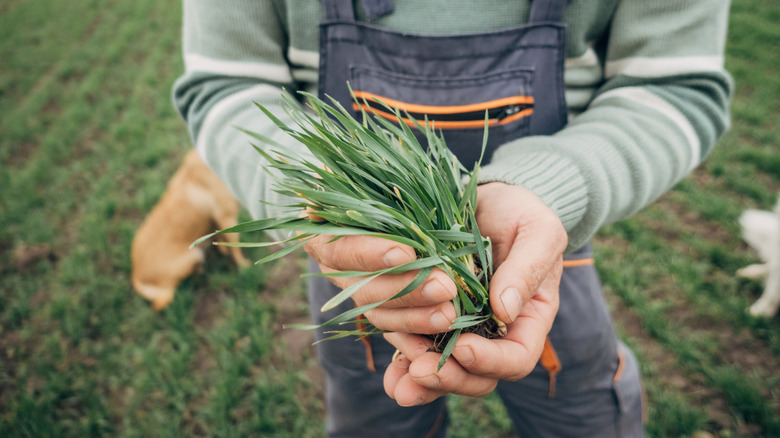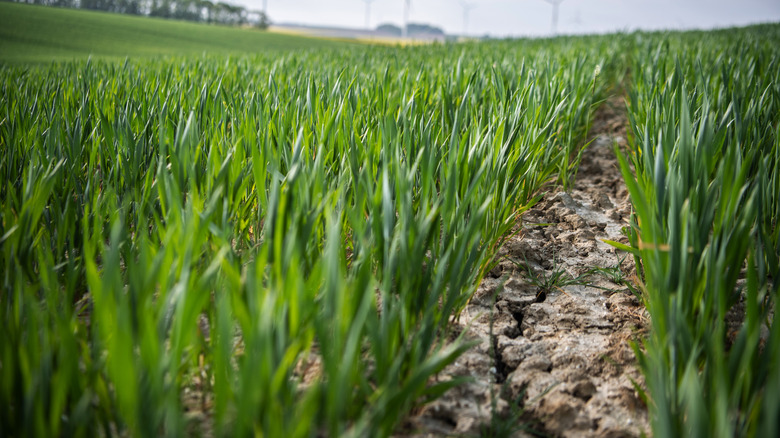Kansas Wheat Farmers Are Destroying Crops Due To Severe Droughts
It's not often you'll see farmers poisoning their crops, but wheat farmers are doing just that in Wichita, Kansas. According to Reuters, Kansas is known as the top producer of baking wheat in the United States and the fifth biggest wheat exporter in the world. But today, these wheat fields are being abandoned, destroyed, or used as grazing pasture in droves.
Whether killing the wheat with chemicals or letting cows do the work for them, many farmers are falling back on insurance claims instead of relying on a faulty harvest. For them, it's the only way to economically salvage crops damaged by drought and severe cold snaps, as harvesting it would be both costly and futile.
A report by the United States Department of Agriculture has an expected 19% of all Kansas wheat fields will be discarded before harvest. Nationally, the number is even higher, with 33% of the wheat harvest not expected to make it to market. The Wall Street Journal also notes of the 37.5 million acres planted with soft and hard red wheat in the U.S. in 2023, only 25.3 million acres have yielded wheat worth harvesting.
Kansas may only produce 191.4 million bushels of wheat this year, a record low since 1963 — and that's the optimistic number. Members of the Wheat Quality Council hypothesize there may be as little as 178 million bushels produced.
Worries over low wheat production
The consequences of this dismal wheat haul are far-reaching. On the front line are the local farm towns, as all economic growth is interconnected with the agricultural output. Grain processors have to take their money out of state, while the local businesses — restaurants, shops, and real estate rentals — miss the support of the seasonal workers who come with the harvest. Even the local Kansas State University's College of Agriculture may feel the pinch, as members of the Kansas Wheat Commission may not be able to pledge the total of their yearly $1 million donation.
Across the board, the flour consumer can expect prices to continue to rise at the supermarket. Still, it's important to remember that these crops are still three to six weeks out from harvest and that plenty can change for the crop yield — good or bad — in that time (via KSAL). The full impact of this wheat harvest? Only time will tell.

